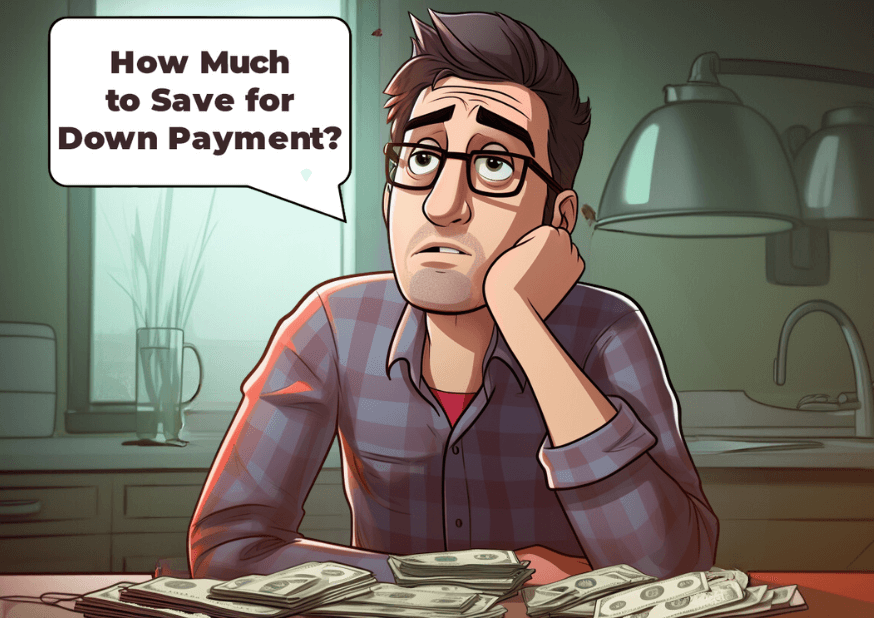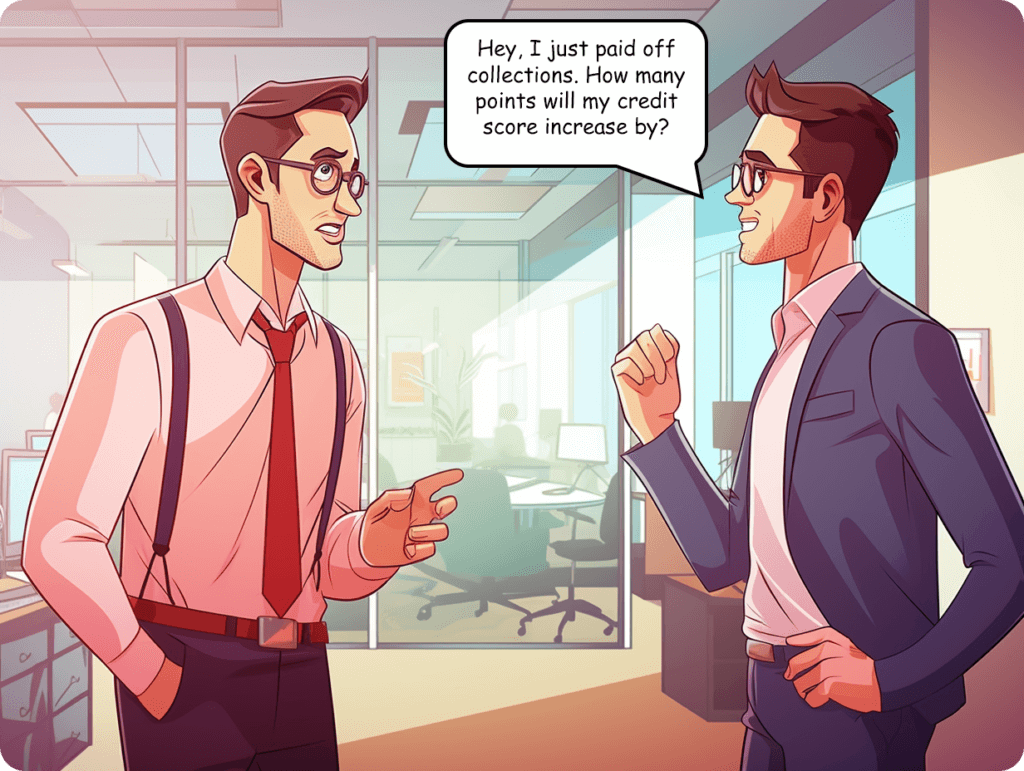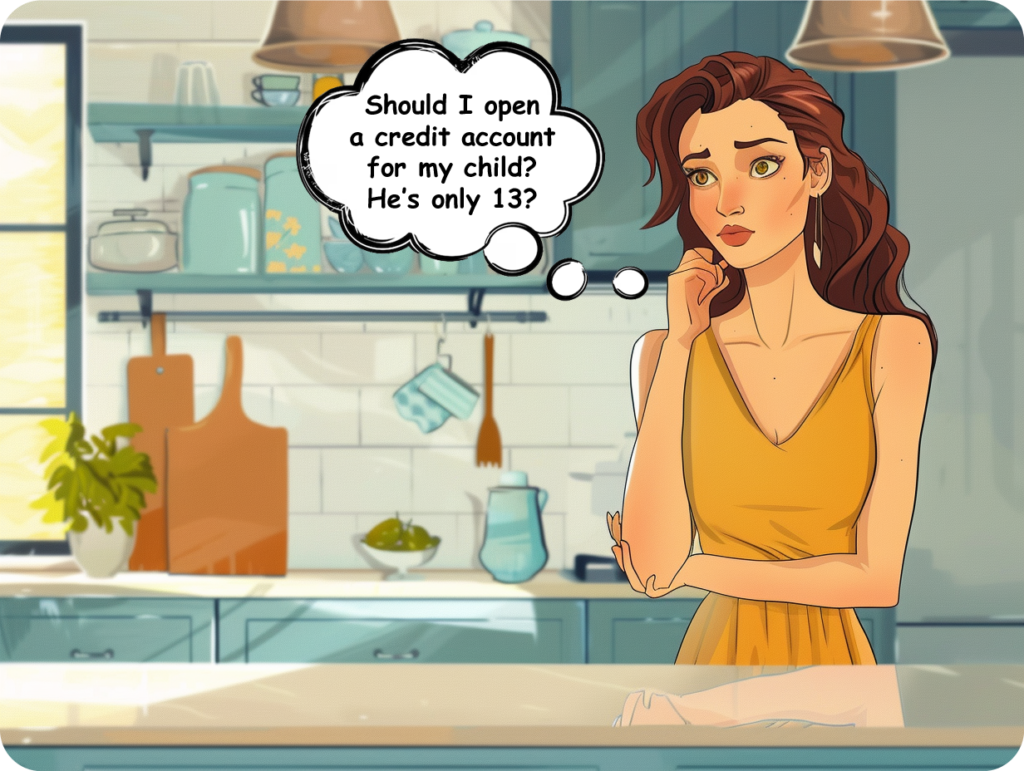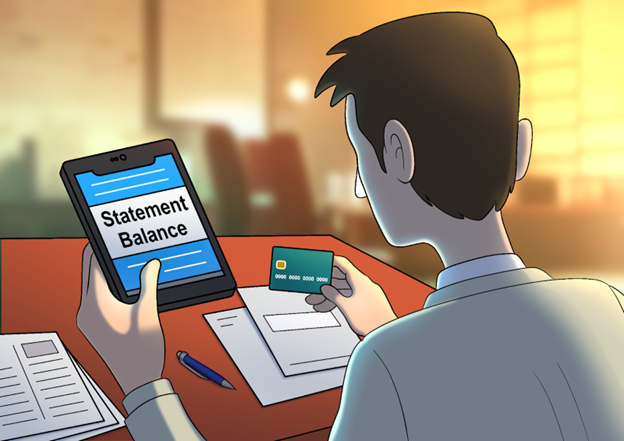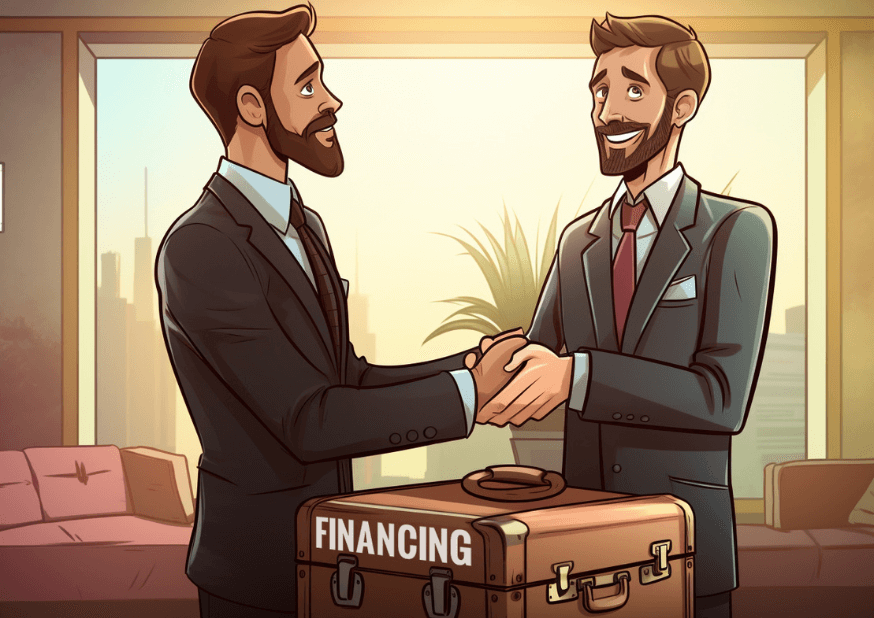- Blogs
- /
- Discover the Best Way to Pay Off Credit Card Debt. 4 Trusted Strategies
Discover the Best Way to Pay Off Credit Card Debt. 4 Trusted Strategies
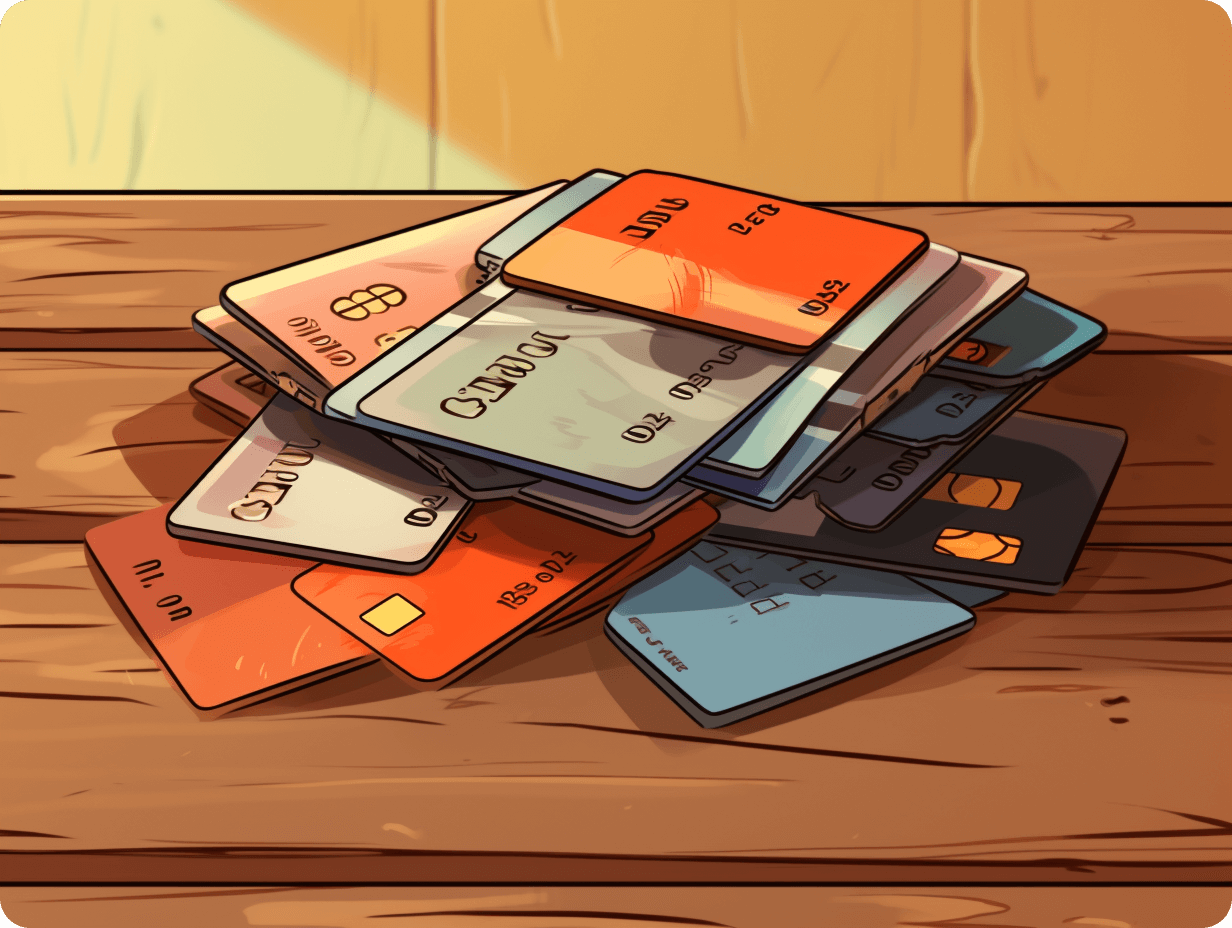
Summary
Credit card debt is a challenging burden that millions of people struggle to overcome. That ever-present nagging worry finds its way into our monthly budget. It makes the road to financial freedom feel like a never-ending uphill battle.
A recent report by the Federal Reserve Bank of New York reveals that in 2023, Americans owe over $1.08 trillion in credit card debt.
A recent Bankrate survey showed that over 49% of Americans were debt revolvers. This indicates that most Americans lack the financial skills to pay off credit card debt quickly.
But thankfully, there are several easy and reliable ways to pay off your credit card debt quickly. We’ll delve into these practical strategies and uncover insights that can make this journey less daunting.
Key Takeaways
- Create a list of all the credit card debts you currently owe and pay off those with the highest interest rates.
- Always evaluate your budget and identify areas you can cut down.
- The snowball method involves paying off the smallest debt on your balance before paying the larger ones.
- The avalanche method focuses on paying the debt with the highest interest rate.
- Balance transfer involves transferring your debt to a credit card with a lower or zero interest rate.
- Repairing your credit score makes getting a balance transfer credit card easier.
- Paying above the monthly minimum will help you reduce your loan’s principal and accrued interest.
The Best Way to Pay Off Credit Card Debt

The Snowball Method
The snowball method is one of the best way to pay off credit card debt. You see, it involves prioritizing debts based on their balances, focusing on paying off the smallest debts first.
With the snowball method, you start paying off the smallest balance owed but keep making minimum payments on all other debts.
Doing this can help you gain momentum and motivation as you see smaller debts being eliminated individually.
So, let’s assume you have three credit cards with balances of $800, $6,000, and $1,000, respectively. The snowball method would advise paying off the $800 balance before moving on to the larger ones.
Once your small debts are paid off, you can shift your focus to larger ones. This approach is about helping you build confidence. It’s also about creating a sense of accomplishment that would encourage you to pay off the rest of your debt.
The best part about using the snowball method as your debt repayment plan is that you experience sweet psychological wins. And this keeps you motivated throughout your journey to debt-free.
The satisfaction of clearing smaller balances creates positive reinforcement and encourages your continued commitment to eliminating more enormous debts.
The Avalanche Method
The avalanche method is a highly effective strategy for tackling credit card debt. This is especially true if your goal is to cut interest costs. The snowball method prioritizes smaller balances. In contrast, the avalanche method focuses on high-interest debts first.
With this approach, your goal is to identify your highest-interest-rate debt. Then, allocate extra funds towards paying it off while making minimum payments on other obligations.
Once this high-interest debt is cleared out entirely or reduced significantly enough through extra monthly payments, you can shift your attention to the next highest-interest debt until all are fully repaid.
Let’s say you have three credit cards. They have interest rates of 15%, 20%, and 25%. The outstanding balances are $800 at 15%, $6,000 at 20%, and $1,000 at 25%.
You should prioritize putting additional money towards eradicating that last account. That’s because it’s got a higher cost over time than lower-rate loans or lines. Once you’ve paid it off, move on to clearing up the remaining accounts by order from the highest interest rate.
The Avalanche method remains the best way to pay off credit card debt with high-interest rates. You could save hundreds, even thousands of dollars since you wouldn’t have to pay those high-interest rates for a long time.
Balance Transfers
Balance transfers are strategic financial moves to relieve folks grappling with credit card debt. Essentially, it involves transferring your debt from one credit card to another. This card typically comes with a lower or zero percent introductory interest rate.
The primary goal is to save on interest payments and make your debt repayment journey less burdensome.
What makes balance transfers excellent is that they can give you a temporary break from accumulating interest. And this would make it easier for you to clear a good chunk of your principal without worrying about accruing interest.
But don’t just jump headfirst into getting a balance transfer. Ensure you carefully consider the terms. This includes the duration of the introductory interest rate, balance transfer fees, and the post-promotional interest rate.
This way, you can be better aware of the transfer fees and avoid the temptation to spend on the new card and fall into more debt.
Use Credit Counseling
Credit counseling is a vital financial service. It provides the best expert guidance to folks facing debt challenges.
How does this work? Certified credit counselors often work with counseling agencies. They assess your income, expenses, and recurring debt situation. They also create realistic budgets to help you become debt-free.
Their service can include developing solid Debt Management Plans (DMPs). Not to mention that they’ll also negotiate with creditors for favorable terms like waived fees and lower interest rates.
But it doesn’t end there because education is a key component of credit counseling. Credit counselors often provide workshops, online classes, or personal counseling. This helps you build your financial literacy and make better decisions in the future.
Credit counselors also review credit reports and identify inaccuracies. They’re excellent at helping folks improve their credit scores. That’s because lenders use credit scores to decide if they’d lend, what interest they’d charge, and if they’d approve a mortgage or credit card application.
It’s worth noting that credit counselors are confidential and impartial. They often go out of their way to create an open space for folks to discuss their financial challenges.
Four Ways You Can Assess Your Debt Situation
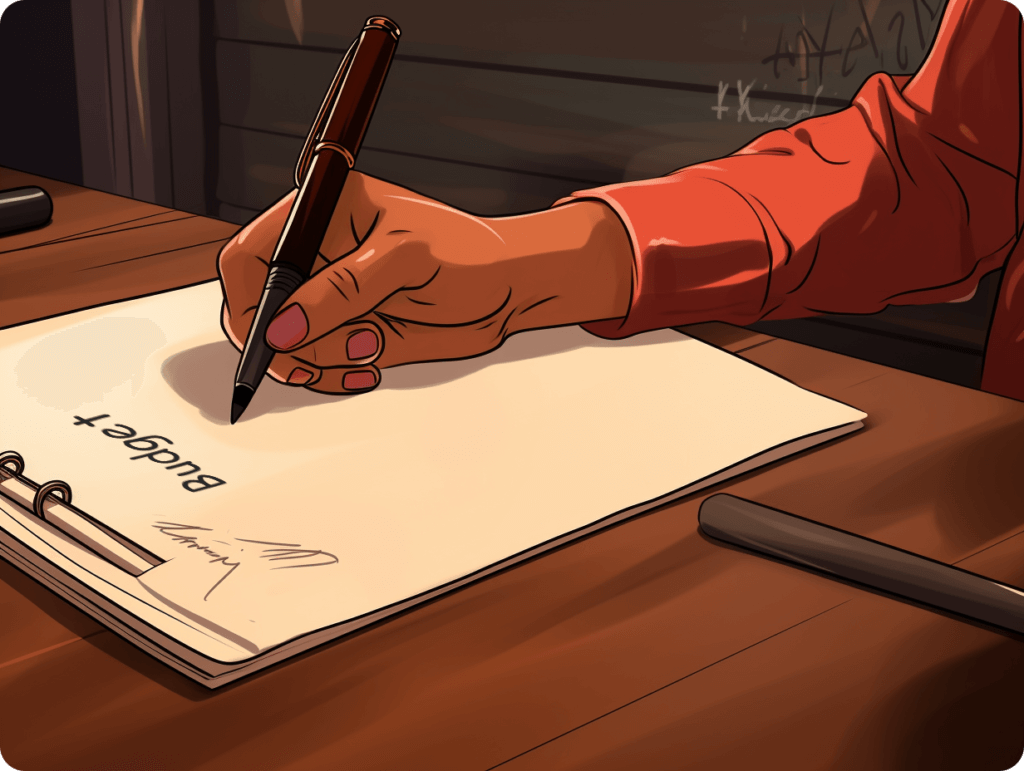
Debt Accumulation
The best way to pay off credit card debt begins with identifying the factors contributing to your financial burden.
It doesn’t matter whether you use your credit cards for everyday expenses, health emergencies, or even large purchases. Recognizing that each swipe adds to your credit card balances and leads to a higher debt is essential. It helps you make the right choice in debt management.
Take a moment to assess your current financial situation. Calculate the total outstanding debt across all your credit card accounts.
While you’re at it, pay attention to their interest rates. Interest rates play a significant role in shaping your card debt accumulation. And that’s because high-interest rates can cause a large increase in the amount you owe on your credit cards over time.
For instance, paying off even a modest balance could take years if you only make the minimum payments on high-interest-rate cards. And yes, it could also cost you thousands of dollars in interest.
That’s why it’s essential to know how interest rates impact your ability to reduce and end your credit card balances.
Doing this will make it much easier to prepare an effective repayment strategy. Plus, it’ll help you cut the long-term effects of high-interest rates on your debt.
Create a Debt Inventory
To tackle your credit card debt effectively; you must create a comprehensive list of all the debt you currently owe. This includes writing down the outstanding balances and the interest rates for each card.
Organize your debts this way so you can understand which debts are accruing the most interest. Then, you can focus on them accordingly. Updating this debt inventory as you progress in repayment will help you stay on top of your financial situation.
It’s important to understand that keeping track of your debts allows you to see how much progress you’ve made over time.
For example, if one of your cards has a lower balance or interest rate, paying off that particular debt first can provide a sense of accomplishment. It can motivate you to continue your repayment plan.
Review Your Budget
Evaluating your current budget is essential. It determines where you can allocate more funds to pay off credit card debt. Look for areas where expenses can be reduced or eliminated to free up extra money to repay what is owed.
You can gain deep insights into your spending habits by identifying and cutting down unnecessary expenses. For example, dining out, subscription services, and impulse purchases. You can also find opportunities to cut back.
You can even opt for homemade meals instead of eating out frequently. Doing this will save you money and contribute towards reducing your credit card balances faster.
Watch Your Spending Habits
Analyzing your personal spending habits would give you valuable insight. You can use it to identify areas where you can adjust to speed up your debt repayment efforts.
Doing this can help you curb impulsive spending. For example, you can set spending limits for your non-essential items. Also, consider using cash instead of credit cards for some purchases. Paying with cash can help you reduce unnecessary expenses.
Building a mindful spending habit involves making conscious choices about when and where your money is spent. Make it your goal to focus on clearing credit card debt rather than impulsively buying non-essential items.
And yes, that may involve refraining from unplanned purchases at online sales events. Or choosing generic brands over premium ones at the grocery store.
Two Vital Tips for Tackling High-Interest Debt

Negotiate New Terms
Did you know you can request more favorable repayment conditions from your creditors? Yes, that’s right. You can learn practical techniques that help you negotiate and pay off your debt. These techniques will help you request lower interest rates or better repayment terms from your creditors.
Negotiating with creditors is crucial in finding the best way to pay off credit card debt, especially if you have excellent credit.
When communicating with your creditors, ensure you do it professionally. There’s no need to throw a tantrum or hurl insults at your creditors.
For example, if you’ve maintained an excellent credit score and a history of on-time payments, you can use this as leverage when negotiating.
However, it’s essential to approach negotiations confidently. Present valid reasons why modifying the repayment terms would benefit both parties involved.
Doing this can boost the likelihood of reaching a mutually beneficial agreement. Also, try your best to back it up with evidence supporting your financial situation and ability to repay the debt under new conditions.
Always Pay Above the Minimum Payment
You must understand that going beyond the minimum payment requirement doesn’t help you reduce the impact of interest. Instead, it reduces the principal amount you owe.
Doing this helps you chip away at your outstanding balance, which can significantly reduce how much interest the loan accrues. This means you’d spend less money paying off interest and, more importantly, less time worrying about your credit card debt.
Folks who choose only to make minimum payments are only maintaining the status quo. All their hard work and efforts keep them afloat, but they don’t make substantial progress. But, folks who introduce extra payments transform their financial trajectory for the better.
For example, consistently making higher-than-minimum payments across all outstanding accounts is a smart move. For example, if you have a $5,000 balance on a credit card with an 18% APR and make only the minimum monthly payment, paying off the debt could take over 20 years.
But, increasing your monthly payment from $100 to $150 or more could save hundreds or thousands of dollars in interest costs over time.
So, ensure you develop your strategy for gradually increasing minimum payments. This way, you can quicken how fast you pay off your debt.
Remember, even small increases in monthly payments can lead to significant long-term savings. And that can help you become debt-free much sooner.
Consider Closing Your Credit Card Account
When deciding whether to close unused or high-fee credit cards, consider the short-term and long-term impact on your financial well-being and credit score.
Closing certain old accounts may seem like a good idea initially, but it might have negative impacts on your credit score. That’s because it erases your credit history and utilization. So, ensure you weigh the potential benefits against the drawbacks before closing specific accounts.
For instance, closing a high-fee card may provide immediate relief from annual fees. Still, it could also affect your available credit limits. This includes utilization ratios and account age diversity, vital factors contributing to your creditworthiness.
Consult with financial advisors or use credible online resources. Doing this can help you decide if closing specific credit cards aligns with long-term financial objectives.
Get professional advice. Ensure any decision you make to close your accounts aligns with your broader financial goals. This will help you reduce any potential adverse effects on your financial health.
How Debt Consolidation Can Help You Pay Off Debt
Debt Consolidation Loans
Debt consolidation loans are an excellent option for streamlining many credit card debts. These loans combine the debts into a single, manageable loan with lower interest rates.
By combining all your high-interest debts into one, you can simplify your monthly payments and reduce the interest you pay. But you must understand that these loans usually need collateral or a good credit score to qualify.
That said, ensure you research reputable lenders when considering debt consolidation loans. Look for lenders offering competitive terms tailored to your specific financial needs. Consider their approval requirements, respective interest rates, fees, and repayment terms.
Also, pay attention to their customer service. Going for a company with robust virtual support or brick-and-mortar customer service agents is always a great idea.
Debt consolidation loans simplify your payments and may lower your interest rates. But, there are some drawbacks to consider.
For instance, it might not be worth pursuing this option if you cannot secure a lower interest rate on the consolidation loan than what you already pay on your credit cards.
It’s vital to assess whether obtaining a debt consolidation loan aligns with your financial goals. Assess your ability to manage new loan obligations.
Also, if taking out another loan adds too much strain on your finances or doesn’t provide significant savings in the long run, it may not be the best choice for paying off credit card debt.
Consider Personal Loans
Another option is using personal loans to merge and repay high-interest credit card debts more efficiently. Like debt consolidation loans, personal loans allow you to combine many debts into one monthly payment at a lower interest rate.
When considering personal loans for consolidating credit card debt, it’s essential to compare interest rates from various lenders. Take note of every associated fee. Always examine repayment terms from different financial institutions before deciding.
One key advantage of using personal loans is that they don’t need collateral as many other types of financing do. But remember that an unsecured personal loan may come with higher interest rates due to the increased risk the lender takes.
It’s critical to assess if getting a personal loan aligns with your financial goals. This is just like evaluating any other way to borrow money. Make sure that extra financing won’t strain your budget and hinder your progress toward financial stability.
Two Solid Alternative Repayment Methods
Home Equity
If you’re a homeowner, leveraging home equity could be the best way to pay off credit card debt. This involves using the value of your home to secure a loan or line of credit that can help consolidate and repay your outstanding balances.
By doing this, you can enjoy lower interest rates than those on credit cards. But, it’s crucial to carefully consider the potential risks and benefits associated with tapping into your home equity for debt repayment.
But taking this step could significantly affect your homeownership and financial stability. Before making any decisions, get professional guidance from trusted financial advisors or mortgage professionals. Doing this will give you personalized insights based on your circumstances.
When using home equity:
- A homeowner with substantial equity might find it beneficial to take out a home equity loan at a lower interest rate than their credit card’s rates.
- But if your future income or employment stability is uncertain, approach home equity cautiously. This is because of the risk of losing your house if you can’t meet payments.
Use Debt Relief Services
Debt relief services are often provided by various organizations like credit counseling agencies, settlement companies, and nonprofit organizations specializing in helping folks address their financial challenges effectively.
You must conduct thorough research before engaging with any debt relief service providers. That’s because understanding the range of services different organizations offer will be crucial in helping you pick the best one.
These services may include counseling sessions. The goal is to educate folks on budgeting and money management skills. They may also include structured repayment plans tailored to individual financial situations.
When considering third-party help with credit card debt, it’s important to be cautious. Ensure you choose a debt relief organization that’s transparent, credible, and compliant with industry regulations.
Stay Disciplined
Implementing these practical steps and maintaining disciplined financial habits can help you settle your debt. This will pave the way for a future where financial stress takes a back seat.
With each payment, every extra dollar directed toward your debt is a step toward your newfound financial liberation. So, seize the momentum, stay committed, and watch your journey to a debt-free life unfold.
Your financial wellness is within reach. By embracing these techniques, you’re not just paying off debt fast. You’re reclaiming control over your financial narrative.
FAQs
What is credit card debt?
Credit card debt is the money you owe to credit card companies for purchases made using your cards. It accumulates when you carry a balance from month to month, incurring interest charges.
How can I assess my debt situation?
Start by gathering all your credit card statements and listing the balances, interest rates, and minimum payments.
Then, calculate your total debt and compare it with your income to understand how much you can pay towards monthly repayment.
What are some effective strategies for repaying credit card debt?
Strategies like the snowball method and the avalanche method can reduce your credit card debt. You can also use strategies like transfer balances to lower-interest rate cards.
Is consolidating my credit card debt a good option?
Consolidation can simplify multiple payments into one, potentially reducing overall interest costs. But it’s essential to consider any associated fees and ensure you don’t add new debts on paid-off cards.
How vital is budgeting in eliminating credit card debt?
Budgeting is crucial as it’ll help you focus on debt repayments and control spending. You can cut your credit card balances by allocating specific amounts towards paying off debts each month.
Our Latest Blogs:
FREE Strategy Session to Fix Your Credit Blogs / Facebook Twitter Linkedin Instagram Share Summary Becoming a homeowner is...

ThisIsJohnWilliams

ThisIsJohnWilliams

ThisIsJohnWilliams
FREE Strategy Session to Fix Your Credit Blogs / A statement balance is the total amount of money a...

ThisIsJohnWilliams
FREE Strategy Session to Fix Your Credit Blogs / Facebook Twitter Linkedin Instagram Share Summary Every savvy entrepreneur understands...

ThisIsJohnWilliams

